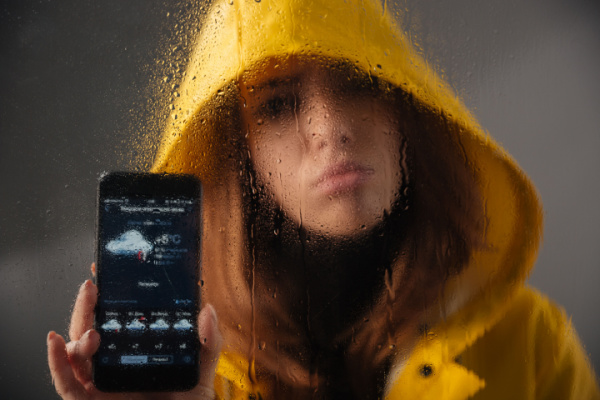Forecast Advisor might be the best-kept secret in the weather business. It’s a website, run by a company called Intellovations, that compares the accuracy of a dozen of the largest weather forecasters. You put in your ZIP code (it only works in the US), and it spits back a ranking of the services based on how correctly they predicted the weather over the last month and the last year. You might be shocked at how different the various sources are and how bad some of them are at predicting the weather.
As The Verge reports, depending on which weather app you use, this is extremely actionable information. Many third-party weather apps allow you to switch between data sources, so you can pick the one that’s most accurate near you — the AccuWeather app is a good example — and enjoy an immediately more useful weather system.
Knowing your go-to forecaster is a handy thing, too, because there’s no such thing as a perfect weather data source. “Whether it’s because of the model they use, or whether they have a lot of weather stations in that area to give a lot of coverage, or whether they have access to radar data, it’s just impossible for one to have complete coverage for everywhere,” says Brian Mueller, the creator of Carrot Weather.
The data is only part of the equation, too. Every source also has its own algorithms for processing that data and tools for publishing it. “The ones I prefer are more poetic,” says Jonas Downey, the co-creator of Hello Weather, “and write a lot about what’s going to happen. Some are really brief, like, ‘partly cloudy.’ Then some of them are like, ‘There will be slight clouds in the afternoon and a light breeze.’ I like the ones that have a little bit more empathy, you know?”
According to The Verge, rather than give you one weather provider, lots of weather apps offer a number of sources. They’re designing ways for you to flip through the sources to find the most accurate one, and more than one developer told me they’re trying to find a way to integrate Forecast Advisor to help. They’re hoping that one way to compete with built-in apps and convince people to download — and even pay for — a third-party weather system is that they can simply do it better.
Weather apps have to walk a tricky line: they have to give you that one-screen experience where you can open the app and get a sense of the weather in a second or two while also offering the kind of depth and knowledge that no built-in app will ever match. And then slowly leading users down the rabbit hole, teaching them how to read radar and compare forecasts.
To stay ahead, developers know they’ll have to keep finding ways to do more and be better. For example, in 2020, Apple announced it had acquired Dark Sky, a beloved weather app that also happened to be the data provider for a huge number of other weather apps. At the beginning of this year, the Dark Sky app stopped working, and the API shut down in March. In the interim, Apple added some of Dark Sky’s tech into its own Weather app and replaced the Dark Sky API with its own tool called WeatherKit. But then, Apple Weather and WeatherKit both started crashing spectacularly. Apple Weather eventually recovered, but it still showed developers that there’s room for something more.
With Dark Sky gone and WeatherKit unreliable, a lot of weather apps have started to integrate with multiple sources to make sure they’re always online and to offer the most accurate forecasts everywhere. Now they’re all thinking about what weather apps might look like on Apple’s long-rumored and imminently expected headset and bracing for all the new features they’ll have to adopt when the next version of iOS is announced in June.
But the real competitive edge, they think, is just being better at telling you the weather. “There’s something psychological about this,” Hello Weather’s Downey says. “The weather happens to you, and you don’t have control over it. And a weather app gives you the feeling of having control.” That means more data, more data sources, and more tools for people to be their own meteorologist. Because not all weather apps are created equal, and there’s no such thing as the perfect weather app for everybody.
But if you use Forecast Advisor to help guide you through the weather app maze, you won’t have to get caught in the rain.
—
Photo Credit: Dean Drobot / Shutterstock.com
